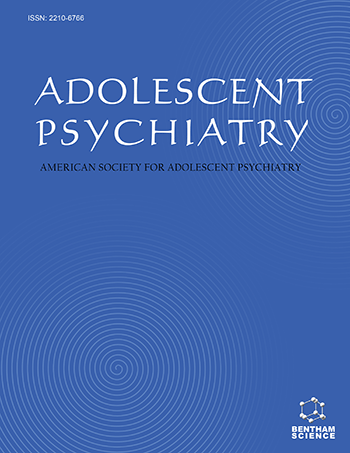Abstract
Interest in the effectiveness of psychological interventions in patients with psychosis has increased in the last 2 decades, and early intervention programs are increasingly common. PIENSA (Programa de Intervención en Psicosis Adolescente; Intervention Program for Adolescent Psychosis) is a clinical program and pilot study based on previous research into the efficacy of early intervention in preventing relapse and improving outcome in patients with first-episode psychosis.
We describe a psychoeducational intervention designed for adolescents with early-onset psychosis and their parents. The intervention is adapted from McFarlane’s Multiple Family Therapy model to our setting and population (adolescents treated in the Spanish public health system). It consists of 2 stages: an individual stage comprising 3 sessions and a subsequent group stage comprising 12 sessions. The total program lasts for 1 academic year (9 months).
We present the design of our program and our preliminary experience in a Child and Adolescent Unit in Spain.
Keywords: Adolescents, family intervention, group therapy, psychoeducational, psychosis, treatment.
Adolescent Psychiatry
Title:PIENSA: Development of an Early Intervention Program for Adolescents With Early-Onset Psychosis and Their Families
Volume: 2 Issue: 3
Author(s): Ana Ruiz-Sancho, Ana Calvo, Marta Rapado-Castro, Miguel Moreno, Carmen Moreno, Teresa Sanchez-Gutierrez, Cecilia Tapia, Guadalupe Chiclana, Pamela Rodriguez, Patricia Fernandez, Celso Arango and Maria Mayoral
Affiliation:
Keywords: Adolescents, family intervention, group therapy, psychoeducational, psychosis, treatment.
Abstract: Interest in the effectiveness of psychological interventions in patients with psychosis has increased in the last 2 decades, and early intervention programs are increasingly common. PIENSA (Programa de Intervención en Psicosis Adolescente; Intervention Program for Adolescent Psychosis) is a clinical program and pilot study based on previous research into the efficacy of early intervention in preventing relapse and improving outcome in patients with first-episode psychosis.
We describe a psychoeducational intervention designed for adolescents with early-onset psychosis and their parents. The intervention is adapted from McFarlane’s Multiple Family Therapy model to our setting and population (adolescents treated in the Spanish public health system). It consists of 2 stages: an individual stage comprising 3 sessions and a subsequent group stage comprising 12 sessions. The total program lasts for 1 academic year (9 months).
We present the design of our program and our preliminary experience in a Child and Adolescent Unit in Spain.
Export Options
About this article
Cite this article as:
Ruiz-Sancho Ana, Calvo Ana, Rapado-Castro Marta, Moreno Miguel, Moreno Carmen, Sanchez-Gutierrez Teresa, Tapia Cecilia, Chiclana Guadalupe, Rodriguez Pamela, Fernandez Patricia, Arango Celso and Mayoral Maria, PIENSA: Development of an Early Intervention Program for Adolescents With Early-Onset Psychosis and Their Families, Adolescent Psychiatry 2012; 2 (3) . https://dx.doi.org/10.2174/2210676611202030229
| DOI https://dx.doi.org/10.2174/2210676611202030229 |
Print ISSN 2210-6766 |
| Publisher Name Bentham Science Publisher |
Online ISSN 2210-6774 |
 20
20
- Author Guidelines
- Graphical Abstracts
- Fabricating and Stating False Information
- Research Misconduct
- Post Publication Discussions and Corrections
- Publishing Ethics and Rectitude
- Increase Visibility of Your Article
- Archiving Policies
- Peer Review Workflow
- Order Your Article Before Print
- Promote Your Article
- Manuscript Transfer Facility
- Editorial Policies
- Allegations from Whistleblowers
Related Articles
-
Clinical Guidelines for the Detection, Prevention, and Early Intervention of Adolescent Substance Use
Adolescent Psychiatry Internet and Video Game Addiction: Evidence & Controversy
Adolescent Psychiatry Psychological Distress Among Youth Probationers: Using Social Determinants of Health to Assess Suicidal Thoughts and Behaviors
Adolescent Psychiatry New Onset ADHD Symptoms in Adolescents and College Students: Diagnostic Challenges and Recommendations
Adolescent Psychiatry Effectiveness of Wet Sheet Packs in Children and Adolescents with Severe Auto/Hetero Aggressive Behaviors: An Exploratory Approach
Adolescent Psychiatry Male Adolescent Treatment Outcome: A Case Series of Eight Men Treated with Psychoanalytic Psychotherapy
Adolescent Psychiatry Perspectives on Female Adolescent Development and Psychopathology
Adolescent Psychiatry Freud Meets Bill W: A Model for the Dynamics of Alcoholics Anonymous
Adolescent Psychiatry Subject Index
Adolescent Psychiatry Etiology of Exhibitionism in Adolescence: A Case Example of Countershame Theory
Adolescent Psychiatry Chronic Absenteeism: A Brief Review of Causes, Course and Treatment
Adolescent Psychiatry Commentary: Anonymous Encounters: Alcoholics Anonymous, Al-Anon, and Overeaters Anonymous
Adolescent Psychiatry Child and Adolescent Mental Health in the Juvenile Justice System in India: Challenges and Initiatives
Adolescent Psychiatry Commentary: ADHD and Substance Abuse
Adolescent Psychiatry A Psychiatric Perspective on Narratives of Self-Reflection in Resilient Adolescents
Adolescent Psychiatry Compassionate Confrontation Psychotherapy: Working with Gifted but Self-Destructive Adolescents in a Therapeutic Boarding School
Adolescent Psychiatry Exploration of Psychological Well-Being, Resilience, Ethnic Identity, and Meaningful Events Among a Group of Youth in Northern England: An Autobiographical Narrative Intervention Pilot Study
Adolescent Psychiatry Using Digital and Social Media Metrics to Develop Mental Health Approaches for Youth
Adolescent Psychiatry Transitional Age Youth with Serious Mental Illness: High Acuity Patients Requiring Developmentally Informed Care in the Inpatient Hospital Setting
Adolescent Psychiatry Relapse Prevention
Adolescent Psychiatry

























